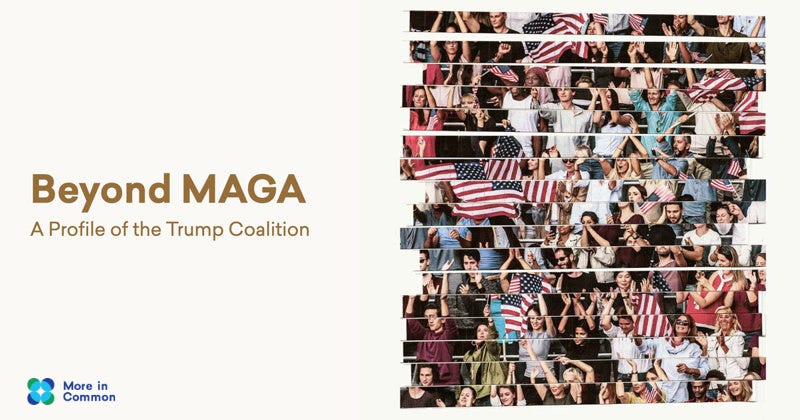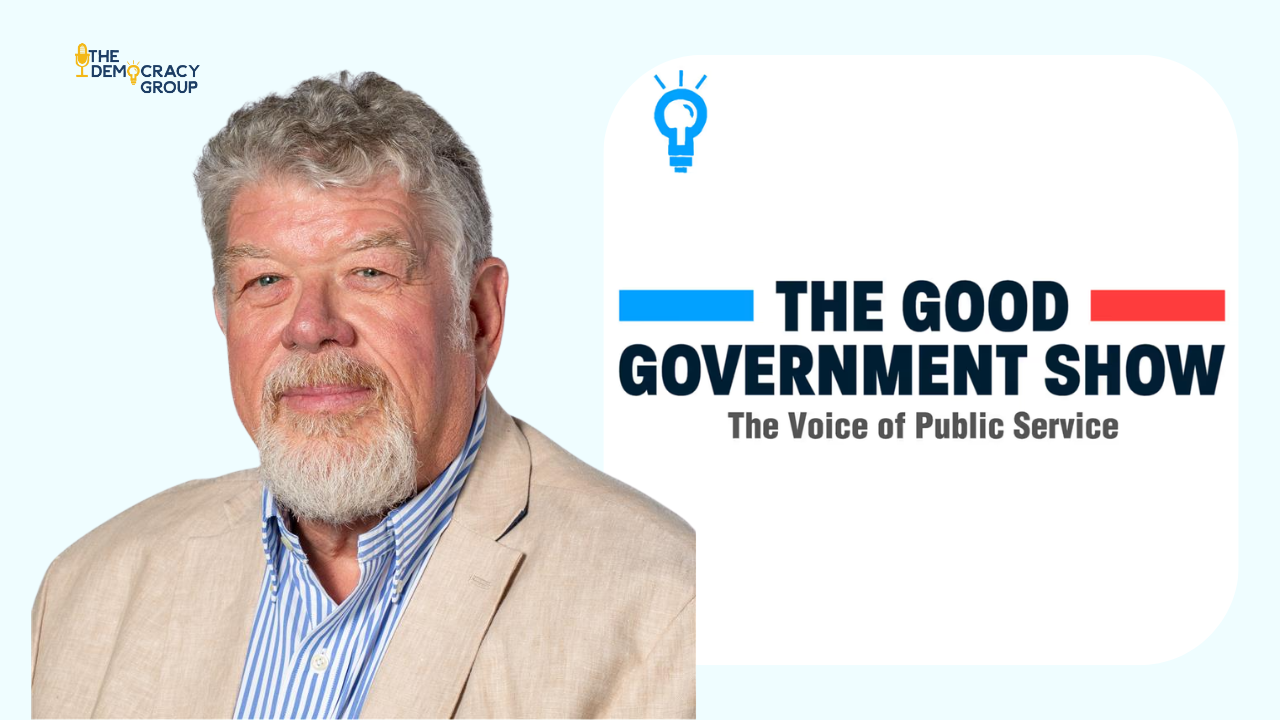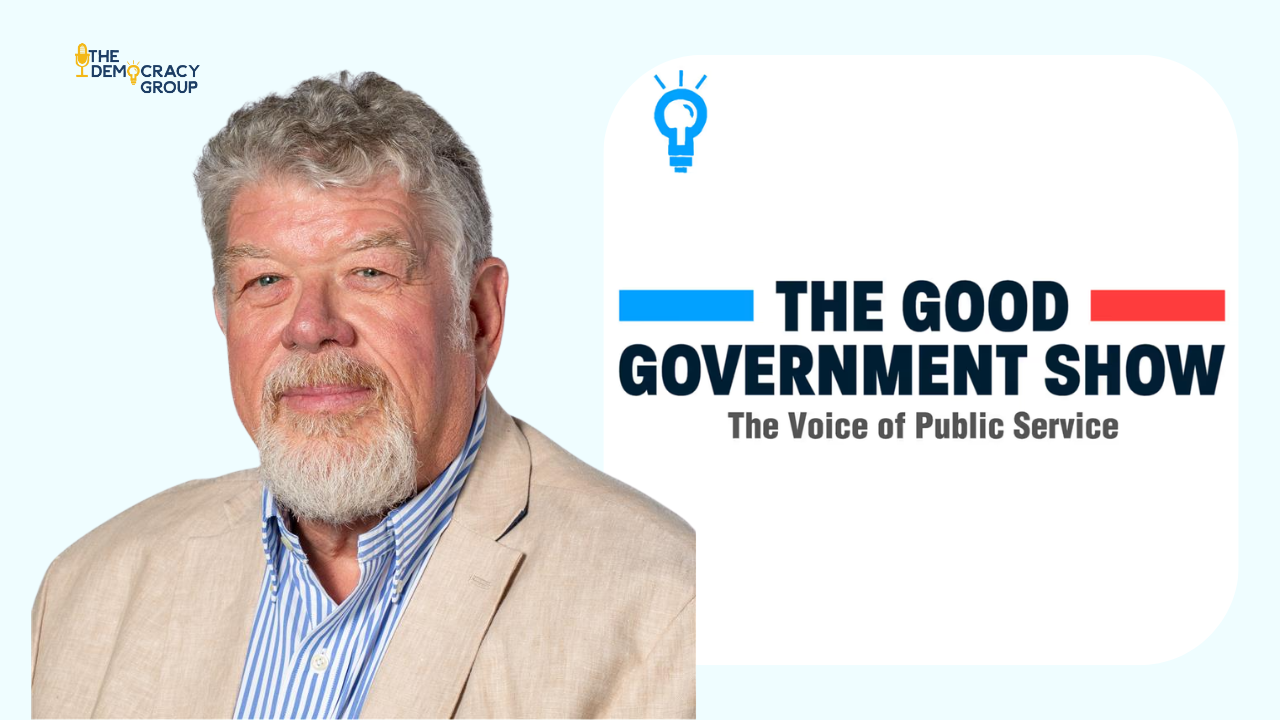
We're excited to welcome the newest addition to The Democracy Group: Democracy Fix — a new podcast by Issue One that highlights how organizations and individuals across the country are working to fix our political system. To officially welcome this amazing podcast to our network, we caught up with host Carah Ong Whaley about Democracy Fix, how the podcast aligns with Issue One's mission and false information.
Tell me about yourself and your work at Issue One.
Carah: I'm the director of election protection at Issue One, a cross-partisan organization working to strengthen our democracy, fix our broken political system, ensure everyone can engage in informed participation in our democracy and that our systems work for everyone. One of the things I'm primarily focused on in the short term is trying to address the many challenges facing our election systems, most importantly, the lack of public confidence in how elections work and who runs them because of so many falsehoods that have been spread about elections, especially since 2020 but even a bit before that.
Our systems are under some unprecedented attacks, but in many ways, they're also resilient. We're focusing on the good work being done by election officials who are trained professionals working tirelessly across the country to provide safe and secure elections this year and doing our best to help educate the public about how elections work, especially after votes are cast. Many people don't know what happens to their ballot after they cast it, and so we're trying to provide credible information and direct people to their state and local officials who are running elections.
How did Democracy Fix come about?
Carah: We started the podcast earlier this summer, and it's focused on Issue One's mission, which is to shed light on how organizations and individuals across the country are working to fix our political system and build an inclusive democracy that works for everyone. We are engaging in conversations about key issues that impact democracy, whether that is reforming Section 230 so that we can hold social media platforms accountable for the information environment, or if it's about spotlighting the work that's being done by secretaries of state and state and local election officials to strengthen our election system.
We're having thoughtful conversations, but it’s just putting a spotlight on the amazing work that is being done that we get to be a part of, and the broader movement building that is happening in all corners of the United States.
What are some challenges Democracy Fix and Issue One see this election year? Do you have plans to tackle them?
Carah: One of the major challenges that we are facing is the toxic information ecosystem and the spread of false information, including flat-out lies about elections, how they work, the people who run elections and even about the other candidates. We're trying to find ways to tone down and temper the rhetoric. One of the things we have put out this year is a community safety guide that's geared toward voters and folks in the public about how they might approach elections in their community.
There are unprecedented challenges in terms of efforts to confuse voters through disinformation about when, how and where to cast a ballot. So we're trying to direct people to their most credible sources of information through our Election Integrity Toolkit about reaching out to your state or local election official to make sure you have the right information about when, how and where to vote, that's really important. Don't be confused or misled by something you might see on social media, online or even being told accidentally, by someone.

This first episode is the perfect way to get into Democracy Fix and its wide range of political topics. Carah delves into some of the challenges mentioned above, such as misinformation and the toxic information ecosystem, providing detailed insights in this episode.
Subscribe to receive a biweekly collection of the hottest podcast episodes from the network, upcoming special events, expert features, and news from your favorite shows.
Subscribe to our NewsletterFrom The Democracy Group, here are some of our favorite podcasts this week, check them out!

More exciting news! The latest season of Democracy Works just launched yesterday, featuring an in-depth look at the National Popular Vote campaign. This initiative aims to guarantee the presidency to the candidate who receives the most popular votes in all 50 states. Guests Patrick Rosentiel and Alyssa Cass discuss their strategy to secure 270 electoral votes to implement NPV nationwide by the 2028 election.

Democracy is more than just voting and certainly more than "voting in November every 4 years," said ActiVote Co-Founder and COO Sara Gifford. She reveals how democracy encompasses so much more, from civic participation and education to policy and elected officials. (Fun fact: We featured Sara and ActiVote during Civic Learning Week last November!)

This episode takes on weighty topics, exploring cases of white supremacy, far-right extremism, and the evolving landscape of terrorism in recent years, all of which drew back to why the Department of Homeland Security was created in the first place. The season finale underscores DHS’s counter-terrorism mission and highlights the efforts of those working to make the broken system more humane.

Tom Hicks was nominated by President Barack Obama and confirmed on December 16, 2014, to serve on the U.S. Election Assistance Commission as the Designated Federal Officer of the Board of Advisors. Hicks is a frequent speaker at conferences in the United States and overseas on issues such as voter access, cybersecurity and election official safety. He received his J.D. from the Catholic University of America, Columbus School of Law and his B.A. in Government from Clark University.

Abigail Spanberger is an American politician and former CIA officer serving as the U.S. representative from Virginia's 7th congressional district since 2019. She began her career in public service as a federal law enforcement officer — working money laundering cases and tracking narcotics traffickers with the U.S. Postal Inspection Service. Previously, Spanbeger led bipartisan efforts to prevent fentanyl overdoses, protect Virginia’s natural resources, and support veterans.
Subscribe to receive a biweekly collection of the hottest podcast episodes from the network, upcoming special events, expert features, and news from your favorite shows.
Subscribe to our Newsletter
More in Common Research Manager Paul Oshinsk breaks down the report’s findings and shares insights into what motivated Trump voters
Read Post
We welcome a new show to The Democracy Group! 🎉
Read Post
Host Dave Martin talks about “good government” stories, why they’re absent from mainstream media and what the show has planned for 2026.
Read Post